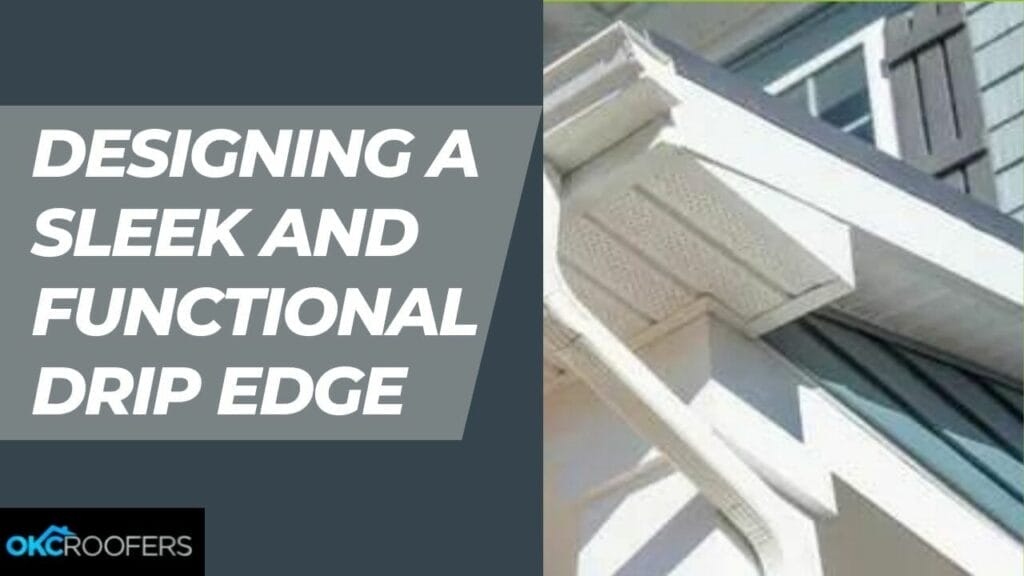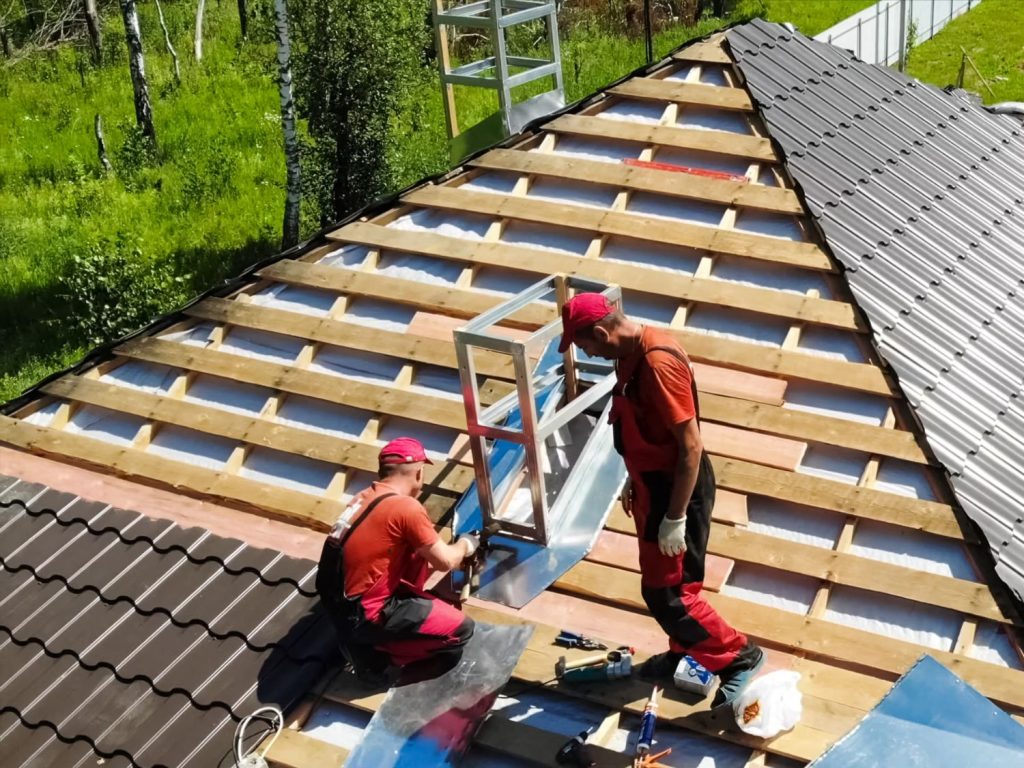A drip edge is an essential component of any roofing system, protecting the roof structure, preventing water damage, and enhancing the overall appearance of the building. In designing a drip edge, it is crucial to combine aesthetics and functionality to achieve a seamless blend of style and practicality.
The Role of Aesthetics in Drip Edge Design
1. Enhancing curb appeal
Selecting materials and finishes that complement the building’s style is essential to create an aesthetically pleasing drip edge. Whether a modern, contemporary structure, or a traditional architectural design, the drip edge should harmonize with the overall aesthetic. Incorporating sleek and modern design elements, such as clean lines and minimalist profiles, can elevate the visual appeal of the drip edge.
2. Color coordination with the roof and exterior
Coordinating the color of the drip edge with the roof and exterior can significantly contribute to the overall attractiveness of the building. The drip edge seamlessly blends in with the roof by selecting complementary or matching colors, creating a unified and visually appealing look.
3. Integration with architectural features
A well-designed drip edge should integrate seamlessly with other architectural features of the building. Whether it’s a unique roof design, decorative fascia, or intricate molding, the drip edge should complement and enhance these elements, contributing to overall architectural harmony.
Functional Considerations in Drip Edge Design
1. Diverting water away from the roof
The primary function of a drip edge is to direct water away from the roof. Proper water flow and drainage are critical in preventing water infiltration and potential damage to the roof structure. A well-designed drip edge ensures water is effectively channeled into gutters or away from the building, safeguarding against leaks and moisture-related issues.
2. Protecting the fascia and soffit
The drip edge acts as a protective barrier for the fascia and soffit, shielding these vulnerable areas from water intrusion. By effectively redirecting water away from the roof’s edge, the drip edge prevents rot, decay, and structural damage to these essential components of the building.
3. Minimizing the risk of ice dam formation
In regions with cold climates, ice dams can form along the roof’s edge, leading to water backup and potential damage. A well-designed drip edge incorporates features that help minimize ice dam formation, such as proper insulation and ventilation to regulate roof temperature and prevent snowmelt buildup.
Ventilation and airflow considerations
A functional drip edge should also account for ventilation and airflow requirements. Adequate ventilation helps prevent moisture buildup and promotes a healthier roofing system. By integrating ventilation components within the drip edge design, airflow can be efficiently managed while maintaining the sleek and discreet appearance of the drip edge.
IInnovative Materials and Technologies
The choice of materials is crucial in pursuing a sleek and functional drip edge. Innovative options offer improved durability, longevity, and enhanced performance.
Lightweight and durable materials, such as aluminum or PVC, provide excellent resistance to weather conditions and minimize the risk of damage. Non-corrosive materials ensure long-term reliability and reduce maintenance requirements.
Utilizing heat and UV-resistant materials further enhances the drip edge’s durability and performance, especially in regions with intense sun exposure. By incorporating materials that withstand prolonged exposure to sunlight, the drip edge maintains its functionality and aesthetic appeal over time.
Additionally, incorporating eco-friendly and sustainable materials aligns with the growing demand for environmentally conscious solutions. Choosing materials with recycled content or using sustainable alternatives like recycled metal or composite materials reduces environmental impact.
Design Features for Improved Functionality
Several design features should be considered to achieve optimal functionality while maintaining a sleek appearance.
An overhang design allows for effective shedding, ensuring water is efficiently directed away from the building. This design feature minimizes the risk of water infiltration and damage to the roof and underlying structures.
Seamless installation techniques like hidden fasteners or interlocking systems create a clean and polished look. These techniques eliminate visible screws or nails, contributing to the overall sleekness of the drip edge.
Compatibility with different roof pitches and styles accommodates various architectural designs. A versatile drip edge design can quickly adapt to fit different roof configurations, ensuring consistent functionality and aesthetics across diverse projects.
Installation and Maintenance Tips
Proper installation techniques are essential to ensure optimal drip edge functionality and aesthetics. Hiring professional contractors experienced in drip edge installation is recommended for accurate and reliable results.
Regular inspection and maintenance are crucial to preserve the drip edge’s functionality and visual appeal. Periodically check for any signs of damage, such as corrosion or loose components, and promptly address any issues to prevent further complications.
Case Studies and Examples
To illustrate the successful integration of sleek and functional drip edge design, consider the projects completed by OKC Roofers. We have showcased our expertise in various architectural styles, utilizing different materials and finishes to achieve outstanding results. These case studies highlight how a well-designed drip edge can enhance both the appearance and functionality of a building.
Conclusion
Combining aesthetics and functionality in drip edge design is crucial for a successful roofing system. By carefully selecting materials, considering functional aspects, and incorporating innovative features, a sleek and functional drip edge can enhance curb appeal while protecting the roof and its underlying structures. Consulting professionals and considering specific needs and requirements are essential to achieve the desired outcome. A well-designed drip edge adds beauty to a building and ensures long-term durability and performance.





